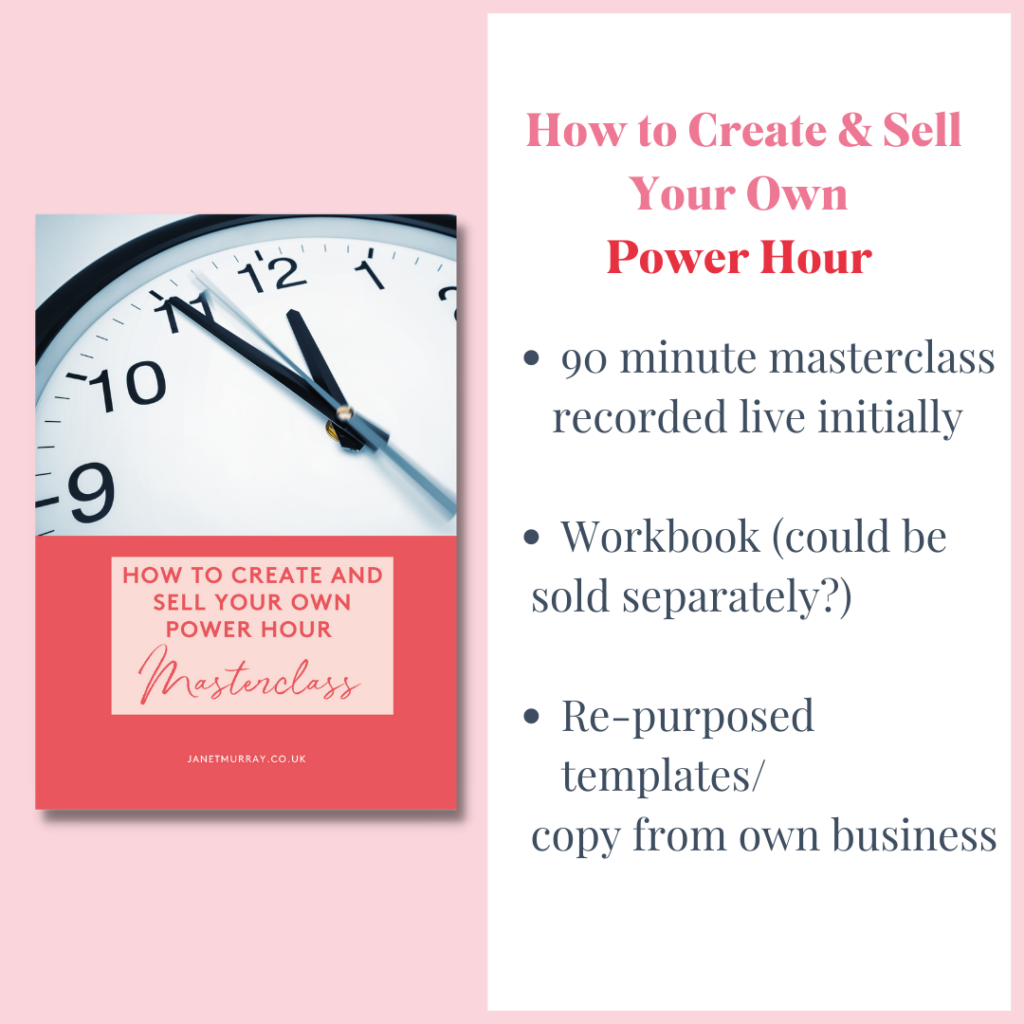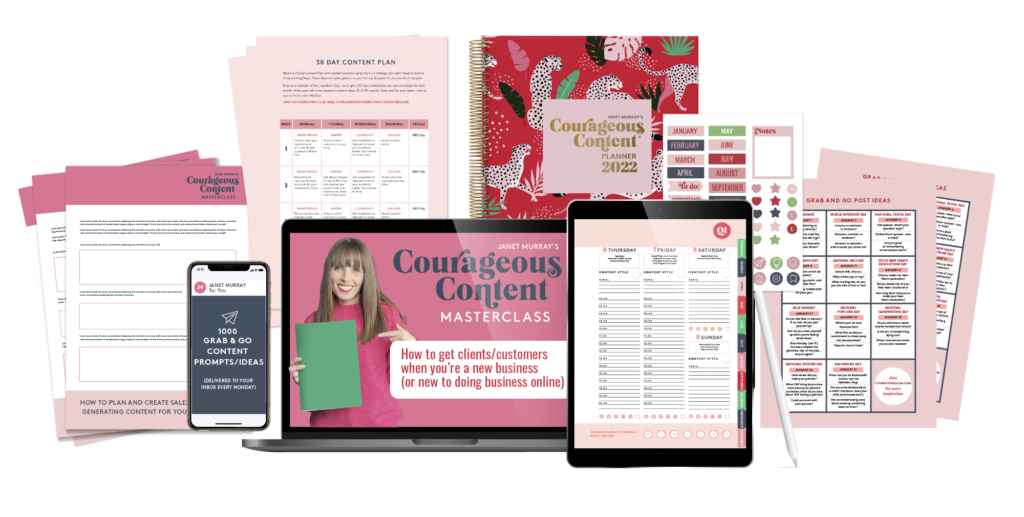
How to choose a topic for an online course
April 15, 2022
Avoid these common mistakes when choosing a topic for your online course.

Something that breaks my heart is seeing business owners spend months creating an online course that doesn’t sell.
Which is usually because they’ve picked the wrong topic for their course.
In this episode of the Courageous Content Podcast I share how to choose a topic for your online course that will sell – plus common mistakes to avoid.
Here’s three common reasons online courses don’t sell.
- The course creator makes a course no one wants to buy
- The course is right but the audience is wrong
- The course creator doesn’t have a big enough audience to sell to
This blog post will focus on reason Number 1: making a course no one wants to buy.
What makes a great topic for an online course (and what doesn’t)
With any online course your aim should be to solve a very specific problem for a very specific person.
Ideally you should also provide a quick win. This will make it easier to gather testimonials and client success stories to help with marketing.
This is why I recommend new course creators start with a one module course.
The One Module Online course (and how it can save you from a course launch flop)
An online course does not have to contain umpteen video tutorials, cheat sheets and checklists.
You can deliver a ton of value in a one module online course (aka masterclass).
Because an online ‘course’ can be:
- A one-off masterclass
- A pdf download
- A resource kit e.g. templates/checklist
Something you can literally create and start selling in a morning. Without any fancy email marketing or course hosting software.
Which means you can start generating recurring revenue in your business now (rather than waiting until you have time to create a big multi module online course).
Starting with a One Module Online Course also means you get quick feedback on your course idea – so don’t spend months working on a course that won’t sell.

For example, one of my best selling online ‘courses’ is on how to create and sell a Power Hour (an one-off consultancy session).
It was initially sold as a ‘live’ session – then I put it on sale in my online shop. Later I added it to my membership programme where it was a very popular resource.
It took just half a day to create the resources – because it was a process I was already using successfully in my own business.
Why your online course needs to solve a problem
It’s important to remember that people don’t spend money on preventing problems (even though they should). They’re far more likely to invest their cash to fix problems.
For example, if you’re a wellbeing coach who specialises in helping public sector workers you might think it’s a great idea to create a digital product on preventing burnout. But people typically don’t know they’ve hit burnout until it happens. Which is why they’re more likely to invest in a product to help deal with burnout.
An exception to this of course is those who have already experienced burnout – and know the impact it can have on their life/work. But that means positioning your course to attract a different type of student (those who have already experienced burnout).
This is why it’s vital to understand your ideal students’ pain points – and the kind of problems they will pay to fix – fast. Because missing the mark on this could be the difference between a successful course launch and a flop.
Course ideas for product-based businesses
If you have a product based business you absolutely can create an online course.
But you need to understand the problems your product solves.
For example, my Courageous Content Planner solves two key problems for business owners.
1. Struggling to come up with content ideas
2. Struggling to stay consistent/organised with content

My Courators Kit is a good example of a one module online course created around a product – and how a product can be integrated into an online course.
It contains content that will help planners get the most out of the product. Including
- 1000+ tried-and-tested content ideas/prompts – so you don’t have to figure out what to post (or get ‘stuck’ for ideas)
- 100+ templates for social media posts (text, video & visual) – so you can create social media content -fast
- Templates for daily, weekly, monthly and annual planning – so you know EXACTLY what to post, where & when
How to spot a course idea that will sell (and one that won’t)
The more specific your course is, the more likely it will be to sell. And you often need to be far more specific than you imagine.
For example, if you’re a fitness instructor you might think creating an online class on Fitness for Over 50s is specific enough. These topics are far more specific and therefore more likely to sell.
- Home workout routine for women with pelvic floor weakness
- Home workout routine for women who feel intimidated by the gym
- Home workout routine for perimenopausal women
Choosing a format for your course
The format you choose is up to you. But building it around content you already have is often the easiest way to get started.
For example, if you have blog posts you know you can easily repurpose into an EBook, why not start there (you can always add an online class later).
If you have slides for an in-person talk that could be repurpose into an online class…why not start there?
If you already use templates and checklists with your clients that could be repurpose into a resource kit…why not start there?
And no you don’t need a fancy online course platform to host your online course. And you don’t need an email list to launch an online course either – especially as a new course creator.
Want help launching your online course? Click here to find out more about my 90 Day Course Launch Sprint.
You May also like

Useful Links
Janet Murray
- Website
- TikTok
- Save 25% on my Business Basics Content Kit using the code PODCAST67.
- Save 25% on my Courageous Launch Content Kit using the code PODCAST67.
- Janet Murray’s FREE Ultimate Course Launch Checklist
- Janet Murray’s Courageous Content Live event
- Janet Murray’s Courators Kit
- Janet Murray’s Courageous Content Planner




